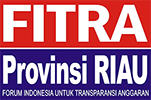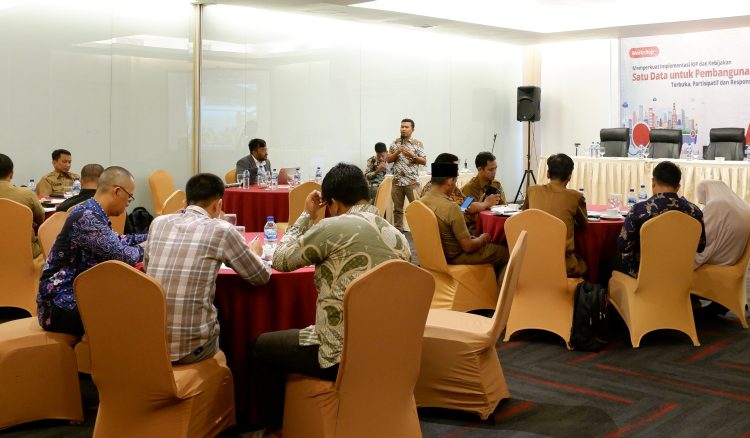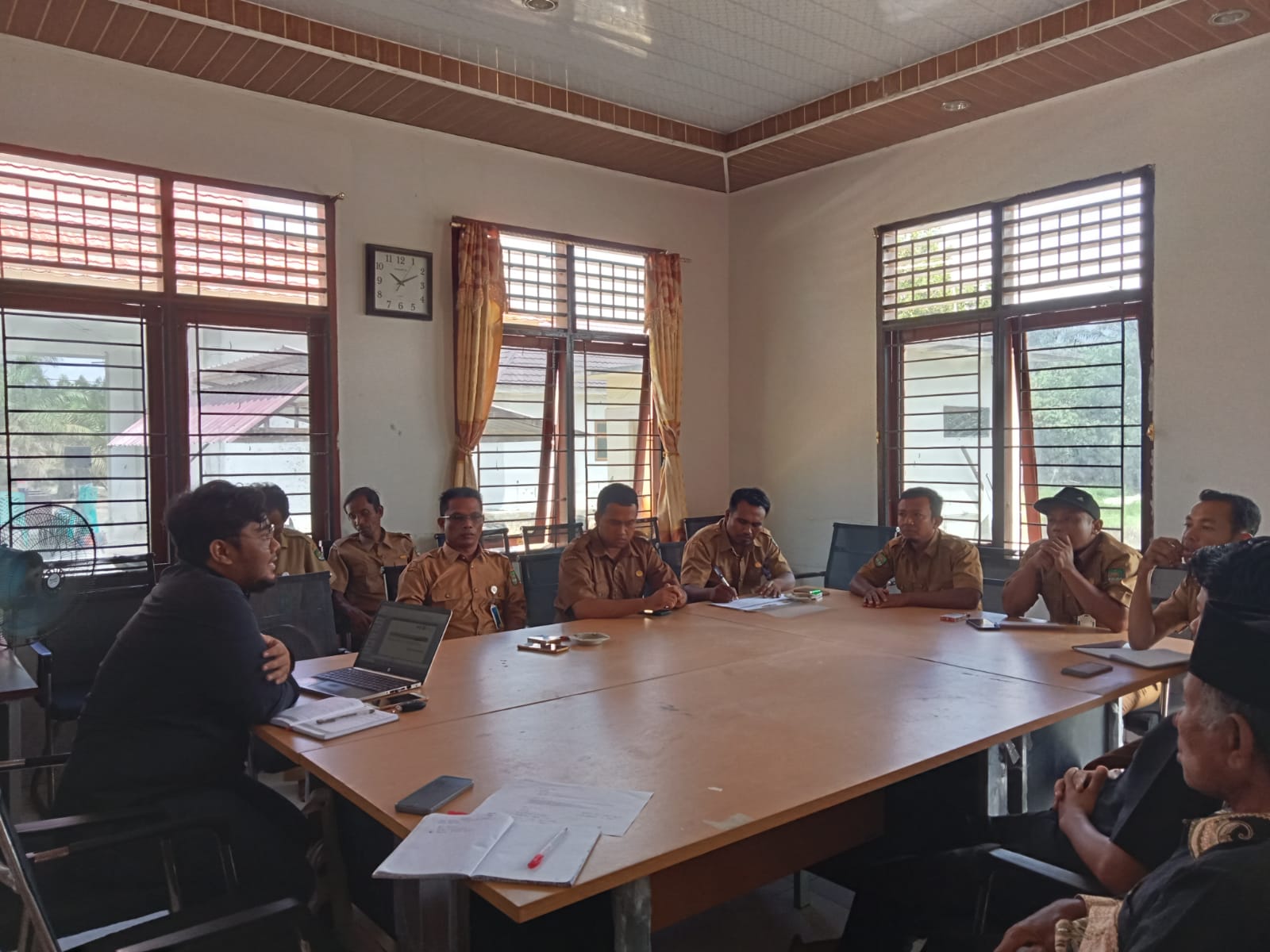FR2023_ The Indonesian Forum for Budget Transparency (FITRA) in Riau Province organized a workshop in collaboration with the local governments of Pelalawan District, Rokan Hulu, and Bengkalis District. The Directorate of Social and Cultural Affairs from the Directorate General of Regional Development, Ministry of Home Affairs, also participated in the event.
The workshop took place over two days, from July 4th to 5th, at the Premier Hotel in Pekanbaru. Judging from the attendance, almost all stakeholders involved in driving the acceleration of the One Data policy and information transparency were present.
Representatives from the three regions attended, including: the Ministry of Communication and Informatics, Regional Development Planning Agency (Bappeda), Social Affairs Office, Cooperatives and SMEs Office, Village Community Empowerment Office, and the Regional Financial and Asset Management Agency.

During the course of the activities, participants were notably enthusiastic about discussing and updating the progress and conditions of their respective regions regarding the implementation of the One Data policy. They also discussed the challenges and obstacles related to information transparency at the regional level.
Without hesitation, participants posed questions and sought guidance from the speakers. Many questions revolved around strengthening extreme poverty data, availability and authority for data publication, and the steps that regions need to take to accelerate the operation of data centers in their areas, as expressed by Taufik.
Taufik further stated that the event commenced with four sessions. The first session began with an introductory discussion focusing on strengthening the implementation of public information transparency and the One Data policy for open, participatory, and responsive development.
The discussions included Commissioner of the Information Commission, Asri Darma; followed by Indra, Head of the Regional Financial and Asset Management Agency (BPKAD); Tarmidzi; Astrid from civil society representation; and Wahyu Suharto, acting Director of Regional Governance Synchronization III, Directorate General of Regional Development, Ministry of Home Affairs.
The second session, facilitated by Astrid, delved into the conditions and challenges of implementing the One Data policy at the regional level. Sessions three and four, moderated by Taufik and Tarmidzi, aimed to strengthen public information transparency through the implementation of “targeting transparency.”
Sessions three and four focused primarily on reinforcing the role of local governments in information transparency services and identifying published and unpublished public data. According to the Manager of Advocacy & Research at FITRA, this aspect was a significant focus.
From these discussions, it became evident that the progress of the One Data policy in the regions was still lacking and needed further attention. One push was to expedite the regulation of the One Data mayoral decree, strengthen the data portal (website) related to data components, proactively identify public data, and enhance metadata at each local government department, which has not been well consolidated.
Taufik provided an example, explaining that in Rokan Hulu District, support for the data portal was still under development, the mayor’s regulation design was not yet available, and human resource strengthening was needed. As for Pelalawan, regulations were currently being adjusted according to the 2021 gubernatorial regulation on One Data, and harmonization with the Ministry of Law and Human Rights was expected to conclude by the end of July 2023.
Continuing, in Bengkalis District, the regulations from 2020 were still in use, and no adjustments had been made to match the Riau One Data gubernatorial regulation. However, administrative development for data centers and data portal infrastructure, such as data infrastructure and local regulation SOPs, only required adjustments, said Taufik.
As a follow-up to the meeting, Tarmidzi stated that there were joint agreements to be carried out after the workshop. For Bengkalis District, technical assistance would be provided in early September to support changes to mayoral decree No. 51 of 2020, changes and adjustments to the Data Forum Decree, and finalization of data elements for local government and vertical institutions.
Regarding Pelalawan, assistance would focus on legal drafting for the Data Forum Decree, updates or collection of sectoral data elements, and development of the One Data portal, scheduled for the end of July 2023.
For Rokan Hulu District, a further meeting would take place in August with assistance related to the preparation of the One Data mayoral decree, strengthening of One Data human resources, and data information management (PPID). Assistance would also be provided for data element collection and One Data portal development, according to Deputy of FITRA Riau.
Tarmidzi added that the workshop activities would transition into a mentoring phase, expressing the hope that FITRA and the local government could collaborate and support each other to accelerate the One Data policy. Furthermore, he highlighted that the strengthening of the One Data policy and proactive information transparency were part of a program to alleviate extreme poverty, a concern directly addressed by the Directorate General of Regional Development, Ministry of Home Affairs.
Tarmidzi emphasized that these three regions were pilot projects to drive policy efforts for poverty alleviation. Thus, accelerating the One Data policy was crucial to integrating poverty data components effectively. He concluded by stating that it would be excellent if poverty data could be accessible to the public through the local government data portal, promoting proactive access to information.














